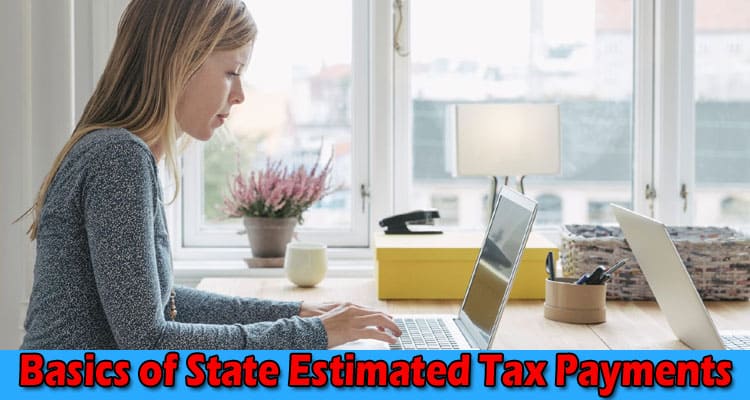Understanding your tax responsibilities, both at the federal and state levels, is crucial whether you’re a freelancer or self-employed person. State anticipated tax payments are quarterly sums of money paid to state taxing bodies to cover your annual state tax owed.
Table of Contents
Taxes: What to Know
In general, you could need to pay state estimated taxes if you’re self-employed or receive income from sources other wages. Instead of having to pay a huge lump sum at tax time, the goal of these payments is to guarantee that you are fulfilling your state tax obligations throughout the year.
The amount of your predicted state tax due for the year, which is determined by your income, deductions, and credits, is often the basis for your state tax payments. To cover your liability, you will need to project your state tax obligation for the year and send quarterly payments to your state tax authority. You can do this with a self-employment tax calculator.
State Tax Laws
It’s crucial to be informed with the state-specific regulations regarding state tax payments because they vary from state to state. Here are the due dates:
- April 15
- June 15
- September 15
- January 15 of the following year
It’s crucial to verify with your state tax authorities to clarify the deadlines for your state as other states may have different deadlines.
There can be additional guidelines and criteria in your state regarding state tax payments in addition to payment dates. For instance, if your income surpasses a specific amount, certain states may compel you to pay state taxes, while others may base their requirements on the kind of company organization you own and operate.
To make sure you are meeting your tax duties and avoiding penalties and interest charges, it’s crucial to stay up to date with the rules and specifications for filing state taxes in your state.
Financial Timelines
Meeting the payment deadlines is one of the most crucial components of state tax payments.
Underpayment penalties may apply to you if you don’t make payments on time and fail to pay at least 90% of your state tax obligation for the year through anticipated tax payments. Depending on the laws in your state, the fine might be substantial and rack up quickly if you repeatedly miss the payment due.
You could be charged interest on any overdue state tax liabilities in addition to underpayment penalties. It is even more crucial to make regular payments because these interest fees can build up quickly. This can also happen with your federal taxes, and the IRS might impose penalties and interest, too.
Conclusion
As a freelancer or self-employed person, paying your state anticipated tax is a crucial element of fulfilling your tax duties, just as important as personal budgeting or savings. You can avoid underpayment fines and interest charges and guarantee that you are meeting your tax responsibilities all year long by being aware of the guidelines and standards for state tax payments in your state and making timely payments.
It’s a good idea to speak with a tax expert if you have questions regarding your state’s requirements for state tax payments or if you need assistance estimating your state tax liability. They can aid you in navigating the state tax code, ensuring that you are fulfilling your tax duties and getting the most out of your tax breaks. You can remain on top of your state tax payments and retain more of your hard-earned money in your pocket with the correct information and direction.


